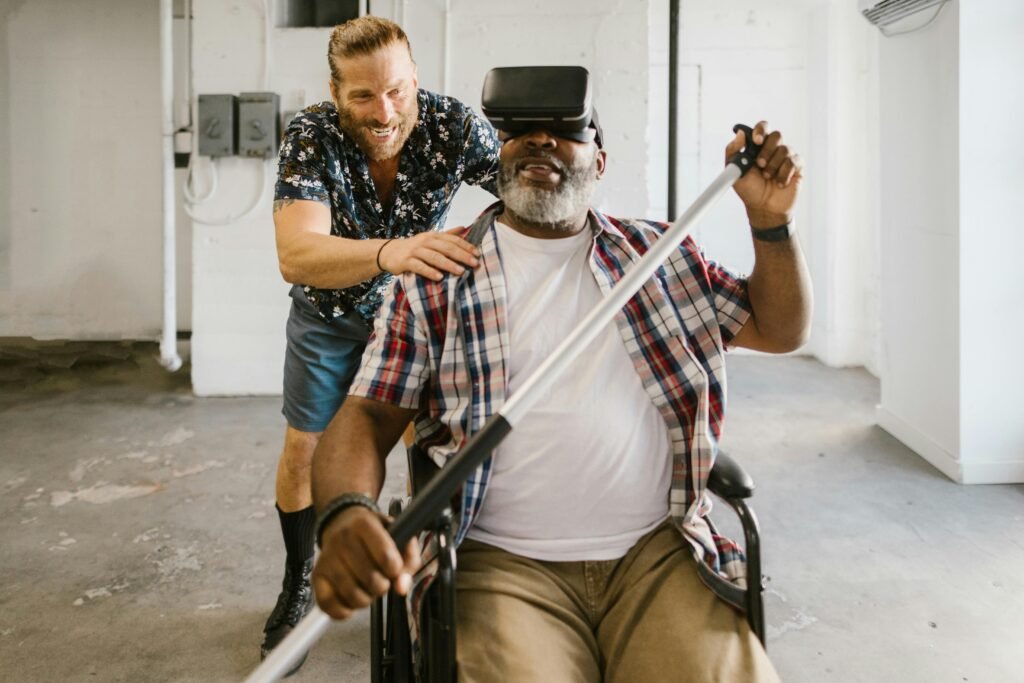Artificial intelligence, or AI, is really changing the game in many fields, but one of the most exciting areas is healthcare. The way AI is being used in patient care is revolutionizing how we do things like diagnosing illnesses, treating patients, and managing healthcare overall. What once felt like something out of a sci-fi movie is now becoming part of our daily lives. It’s helping improve patient outcomes, making processes more efficient, and giving both doctors and patients more power in their healthcare journey. Let’s take a closer look at how AI is making a big impact in healthcare and why it’s likely to shape the future of medicine.
-
AI-Driven Diagnostics: Faster and More Accurate
When it comes to diagnosing diseases, AI is proving to be a game-changer. Traditionally, diagnosing illnesses has relied heavily on human expertise, which can take a lot of time and sometimes lead to mistakes. But with AI, we have algorithms that can analyze medical data—like imaging scans, lab results, and patient history—much faster and with impressive accuracy.

For example, AI has shown great promise in detecting diseases such as cancer. It can often identify abnormalities in medical images that might be overlooked by a doctor. A notable case is Google’s DeepMind, which created an AI system that can diagnose eye diseases with the same level of accuracy as expert ophthalmologists. This means doctors can identify diseases earlier, increasing the chances of successful treatment.
-
Personalized Treatment Plans
Another exciting way AI is advancing, is through personalized treatment plans. Every patient is different, and what works for one person might not be effective for someone else. AI systems can sift through huge amounts of data from clinical trials, patient histories, and even genetic information to create treatments that are tailored to each individual. This means therapies can be more effective and often come with fewer side effects.

For instance, IBM’s Watson Health platform uses AI to assist oncologists in crafting personalized cancer treatment plans. It does this by analyzing data from medical literature and patient records. This AI-driven approach not only speeds up the process but also provides insights that doctors might not have thought of otherwise.
-
Virtual Health Assistants and Patient Monitoring
AI in healthcar is also changing the way patients take care of their health outside of hospitals and clinics. Virtual health assistants powered by AI are becoming popular tools for patients to track their symptoms, make appointments, and even get reminders to take their medications. These tools provide quick support and guidance, which helps reduce the need for frequent doctor visits while keeping patients more involved in their own health.

Additionally, AI is making a difference in how patients are monitored, especially those with chronic conditions. Wearable devices and AI algorithms can keep an eye on vital signs and catch early warning signs of potential health problems. For instance, AI-driven platforms like Apple Health can track your heart rate and alert you if there are signs of irregularities, encouraging you to seek medical attention when needed.
-
4. Reducing Administrative Burdens
Healthcare professionals often find themselves bogged down by paperwork and administrative duties. AI can help by automating many of these tasks, like scheduling appointments, handling billing, and managing electronic health records. This means that doctors and nurses can spend more time focusing on patient care, which not only improves efficiency but also helps reduce burnout.

The use of AI in healthcare isn’t just a passing trend; it’s truly a revolution. From speeding up diagnoses to personalizing treatments and cutting down on administrative work, AI is improving every aspect of patient care. Of course, there are challenges to consider, like ensuring data privacy and addressing the ethical issues that come with AI in medicine. However, the benefits are clear. AI isn’t about replacing doctors; it’s about empowering them. This makes healthcare smarter, faster, and more personalized than ever before. With AI at the forefront, the future of patient care looks very promising.


